Subfamilia: LAMIINAE / Tribus: ACANTHOCININI

[Photo © Milan Lovětínský]
Acanthocinus aedilis, a widely distributed Euro-Asian cerambycid species, is a typical inhabitant of continuous pine forests as well as small pine grooves. Development mainly under thick, rarely under the thin bark of felled, uprooted or otherwise dead trees. Because the thicker trunks are taken from the forest, the development is most often under the bark of the stumps. For standing trees, almost only the lower parts are attacked, but lying trunks along their entire length except parts with very thin bark. The larvae feed beneath the bark, creating a flat galleries. Prior the pupation, larvae bore pupal cells in sapwood, usually up to 2 cm below the wood surface. Often, in the case of thick bark, the pupal cell surrounded by oval chamber from wooden splinters is made directly in the bark or between bark and sapwood. Adults hatch from August to October and overwinter in pupal cells. Very exceptionally, after the long warm season, adults emerge wood during the autumn months. From these findings a frequently published mistake of two generations a year emerged. The life-cycle is usually two years, but the one-year one is also reliably proven. Adults occur in nature sometimes in March, usually from mid-April to mid-May, sometimes until early June. A. aedilis is an crepuscular and nocturnal species, during the day the beetles are usually hidden in the bark crevices and under the wood, but they often run over the logs or fallen trees, sometimes even fly [❖].
Palearctic taxa of the Acanthocinus genus were divided into two subgenera, Acanthocinus s.s. and Acanthobatesianus, on the basis of morphological differences at the generic level by Henrik Wallin et al. [✧].
Body length: 12 - 20 mm Life cycle: 1 - 2 years Adults in: March - September Host plant: pines (Pinus), rarely in other coniferous trees Distribution: Albania, Austria, Belarus, Belgium, Bulgaria, Croatia, Czechia, Denmark, Estonia, Finland, France, Germany, Greece, Hungary, Italy, Luxembourg, Netherlands, Norway, Poland, Portugal, Romania, Russia, Serbia, Sicily, Slovakia, Slovenia, Spain, Sweden, Switzerland, United Kingdom, China, Mongolia, North Korea
The live beetles were photgraphed in Olešná u Rakovníka environs (Central Bohemia, Czechia) on April 19, 2018. The mounted specimens were collected in Stará Boleslav environs (Central Bohemia, Czechia) on a stump of a freshly felled pine tree (Pinus sylvestris) in May 2002.Collected by Milan Lovětínský and M.Hoskovec
[❖]
Sláma M.E.F.:
Tesaříkovití – Cerambycidae České republiky a Slovenské republiky / Cerambycidae of the Czech Republic and Slovak Republic.
Milan Sláma private printing, Krhanice, 383pp, 1998 [ISBN: 80-238-2627-1]. [download]
[✧]
Wallin H., Kwamme T. and Lin M.:
A review of the genera Leiopus Audinet-Serville, 1835 and Acanthocinus, Dejean, 1821 (Coleoptera: Cerambycidae, Lamiinae, Acanthocinini) in Asia, with descriptions of six new species of Leiopus from China.
Zootaxa 3326: 1–36, 2012. [download]
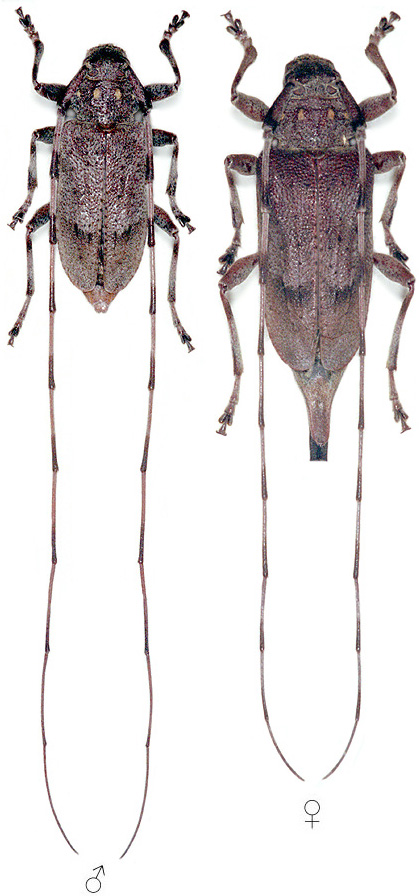
[Photo © M.Hoskovec]

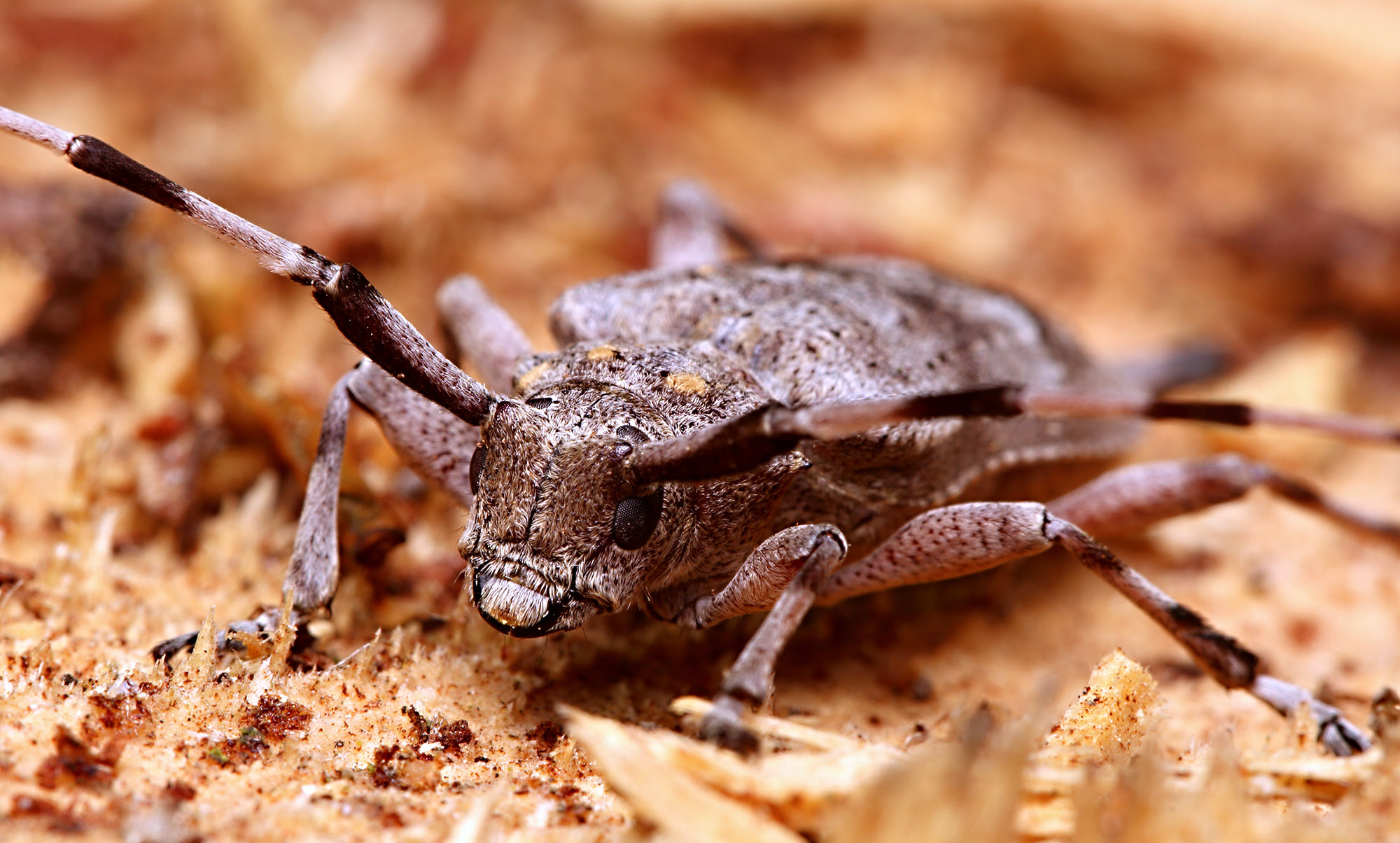
Acanthocinus aedilis ♀ [Photo © Milan Lovětínský]
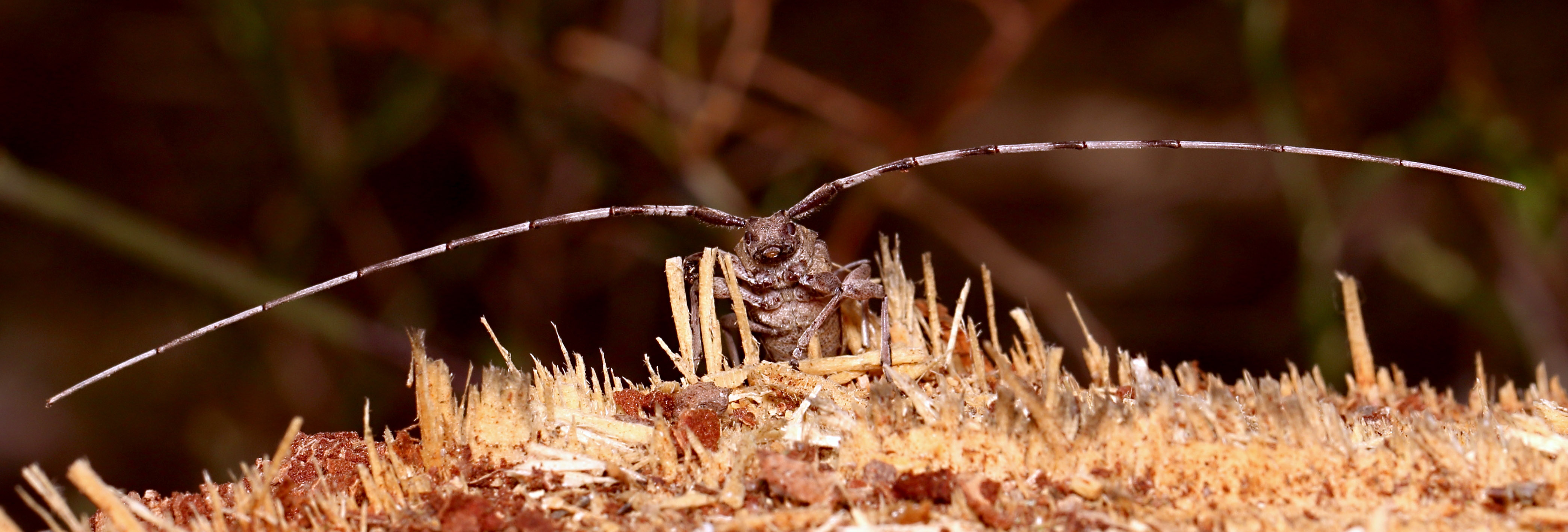
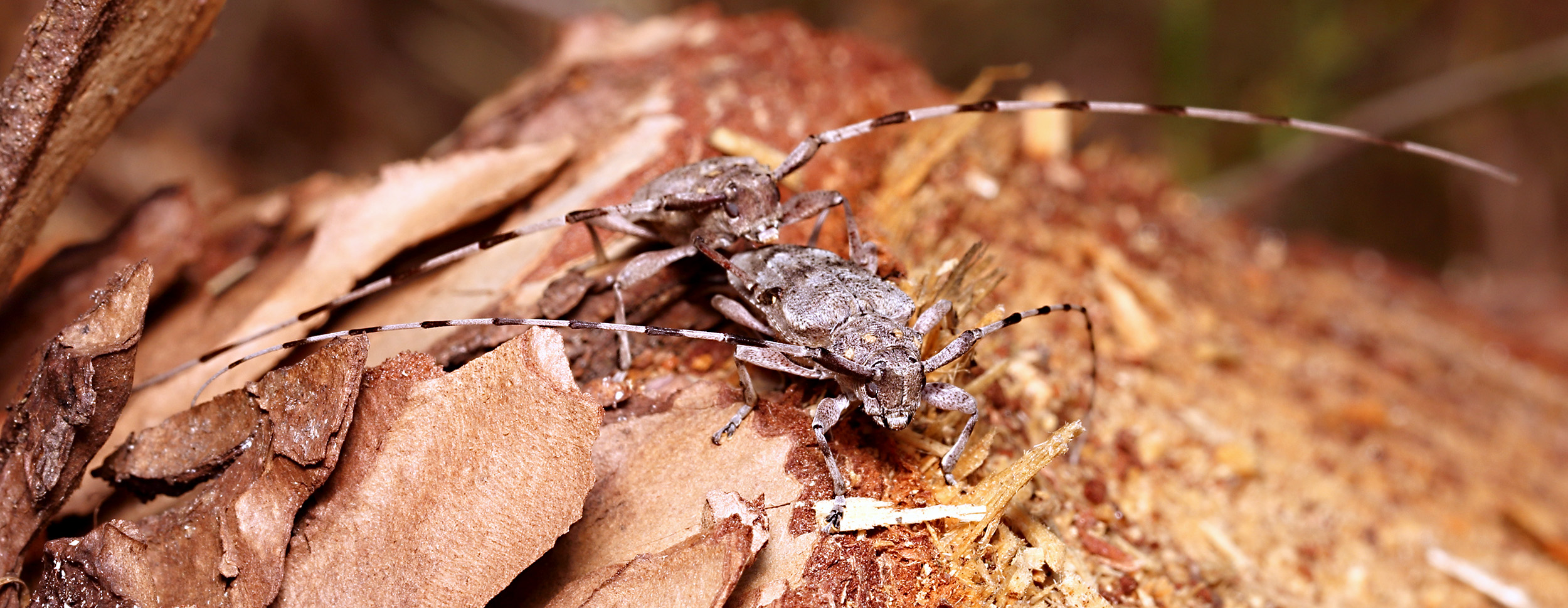
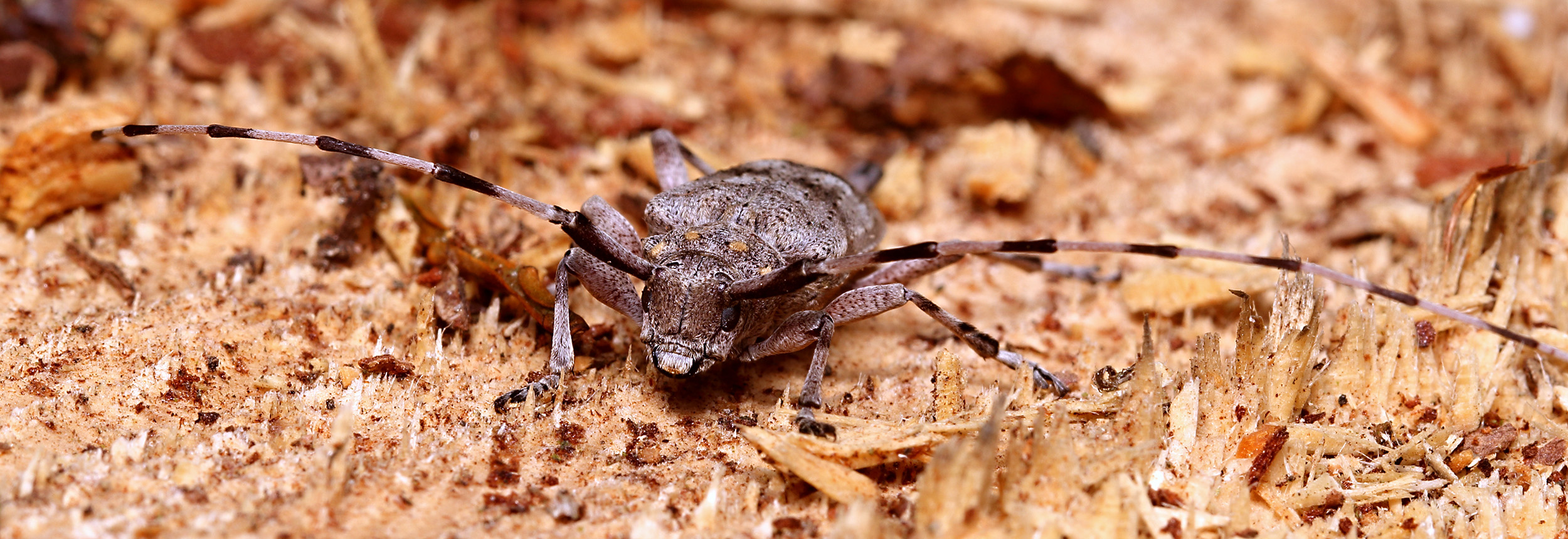
Acanthocinus aedilis ♂ | ♂+♀ | ♀ [Photo © Milan Lovětínský]
Subfamilia: Lamiinae Latreille, 1825
Tribus: Acanthocinini Blanchard, 1845
Genus: Acanthocinus Dejean, 1821
Subgenus: Acanthocinus Dejean, 1821
Species: Acanthocinus (Acanthocinus) aedilis (Linnaeus, 1758)
